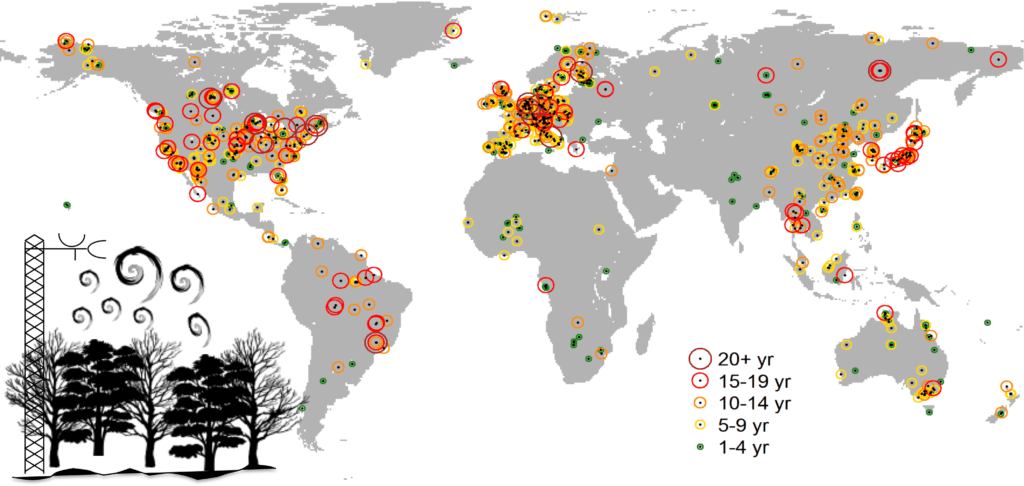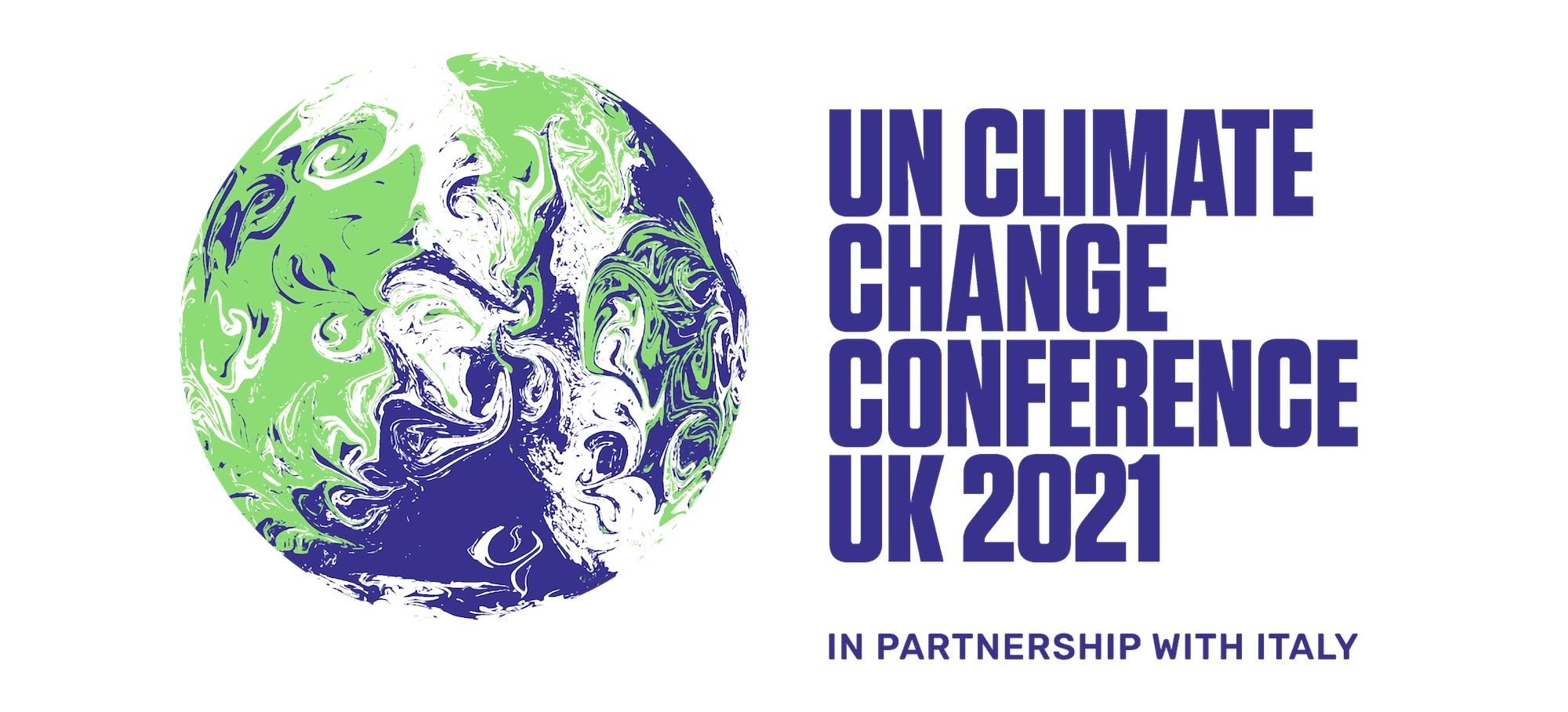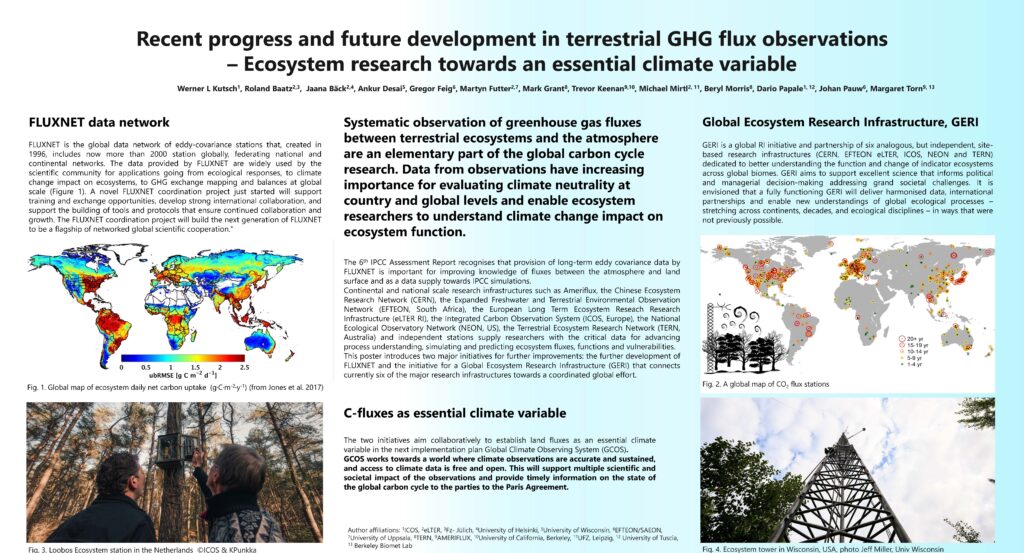NCRIS-enabled TERN will be represented on a virtual poster at the upcoming UNFCCC COP26 meeting in Scotland and will be on display for two weeks from 3 November. Earth Information Day provides an exchange of information on the state of the global climate system and developments in systematic observation.
Earth Information Day 2021 will be held during the Glasgow Conference of the Parties (COP26) to the United Nations Framework Convention on Climate Change (UCFCCC). It provides an exchange of information on the state of the global climate system and developments in systematic observation.
The poster at COP26 features two international collaborations to which TERN contributes. One is the Global Ecosystem Research Infrastructure (GERI) – a collaboration of the world’s continental-scale land observatories of which TERN is a founding member. The second is FLUXNET, the global data network of eddy-covariance research networks which aggregates the flux station data from its members, including TERN OzFlux, representing the Australia and New Zealand region. The poster provides a link to GERI’s collective data, services and information about the function and change of indicator ecosystems across biomes and to the FLUXNET’s data on land fluxes of Green House Gases (GHG), which places TERN’s OzFlux monitoring stations on a global map.
View the UNFCCC COP26 Earth Information Day poster online here
Greenhouse gas fluxes between terrestrial ecosystems and the atmosphere are already accepted by the Intergovernmental Panel on Climate Change (IPCC) (6th IPCC Assessment report) as being increasingly important in improving knowledge of the exchange of carbon, water and energy between the atmosphere and the Earth’s surface and input data into IPCC global climate simulations.
One of the goals GERI and FLUXNET are working towards now is the recognition of ‘land fluxes’ as an essential climate variable in the next implementation plan for the Global Climate Observing System (GCOS). GCOS works towards a world where climate observations are accurate and sustained, and access to climate data is free and open.
Working through its international collaborations with GERI and FLUXNET and contributing to activities such as global data-focused processing protocols and pipelines, TERN is enabling ecosystem researchers to understand climate change impact on ecosystem function at local to global scales.

A global map of CO₂ flux stations (credit FluxNet) (Image at top credit: United Kingdom Open Government Licence v3.0)








